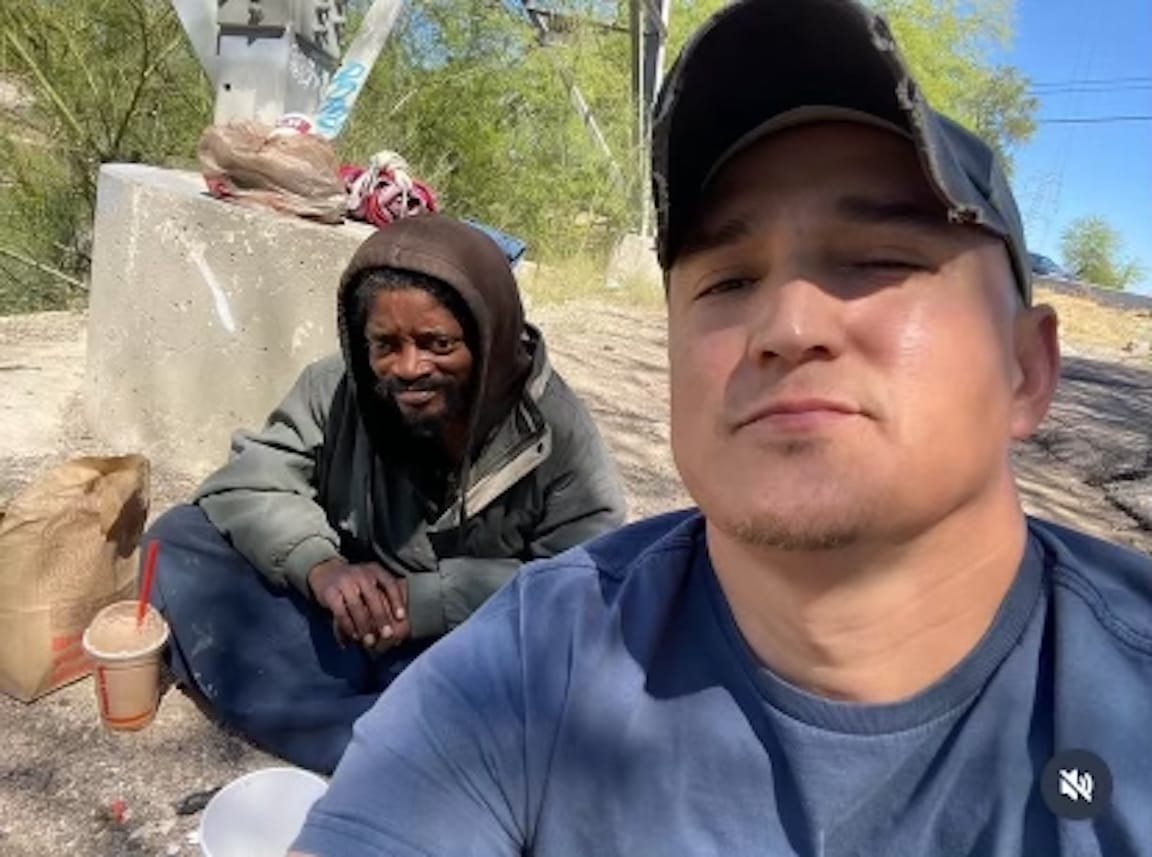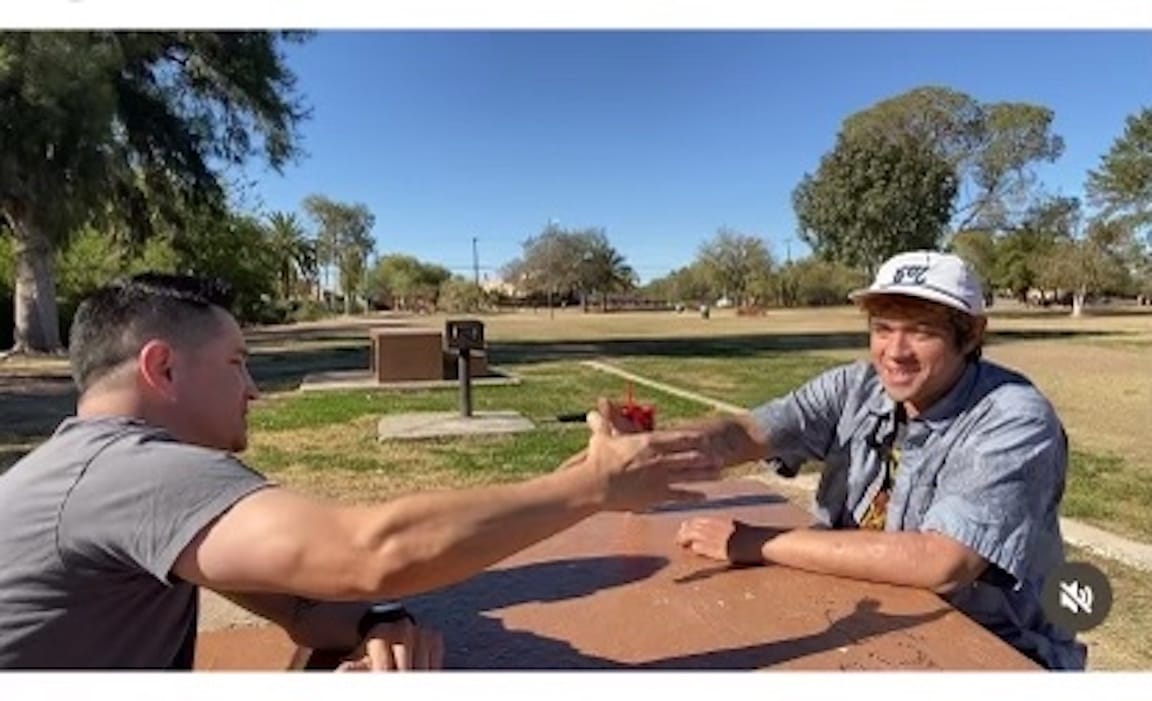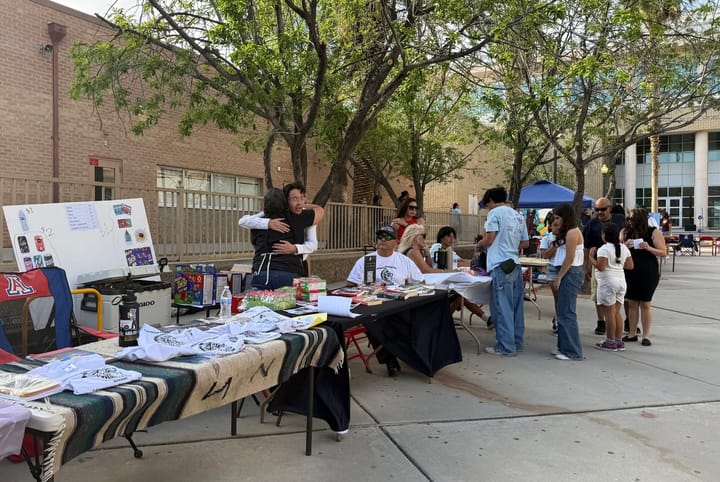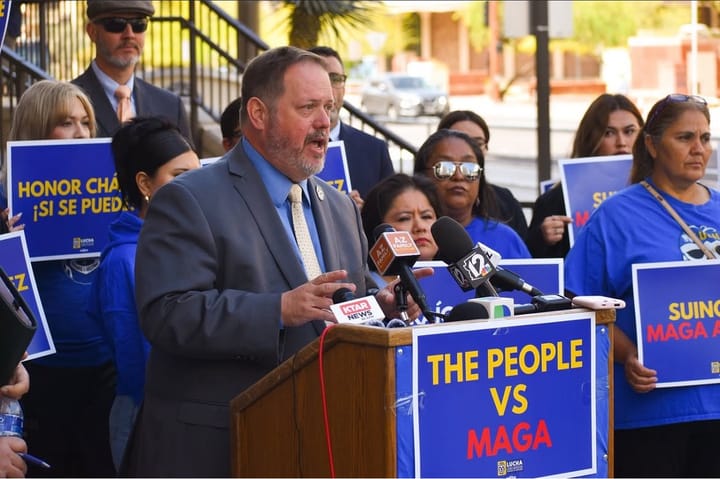YouTuber amplifies voices of Tucsonans experiencing homelessness
A YouTuber in recovery shares the stories of homeless individuals to raise awareness about addiction.

At the age of 19, Daniel Morelos Jr. began experimenting with hard drugs, smoking heroin for the first time. He was hooked on opiates by the time he was 25 and spent 11 years struggling with addiction.
But in 2018, after finishing up his third round of inpatient rehab, Morelos considered himself in recovery.
Four years later, he started a Youtube channel called Righteous Monkey, and began posting videos documenting his recovery journey.
Morelos quickly gained a following, telling personal stories about topics including what heroin addiction looks like, rehab romance and sober living.
But after about a year of posting, he started to run out of stories to tell.
“So I just hit the streets,” he said. “My first interview was behind a QuikTrip gas station.”
Morelos began doing video-interviews with people living on the streets in Tucson in an effort to humanize people battling addiction.
In doing this, he hoped to give the people he interviewed a platform to share their message while also reminding viewers that these are people, too.
“When families are out grocery shopping, hopefully they see someone I interviewed or even a person they don’t know and they’re not afraid to speak to them,” said Morelos.
A little more than two years after his first interview, his Righteous Monkey accounts have grown to over 10,000 subscribers on Youtube and more than 5,000 on Instagram.

And even though Morelos calls himself “not the best storyteller,” he says he’s received an outpouring of support, some of it from relatives of the people he’s interviewed.
Not all the feedback he receives is positive, he said, but negative comments are a rare occurrence.
Some people have accused him of doing the interviews to make money, and others claim that he’s exploiting his subjects.
He said he used to respond to these kinds of comments, but he’s stopped, deciding to “keep it professional” and let his work speak for itself.
“You’ll learn more about me and why I do this and why I’m actually the right person to be doing this,” he said. “I’m not just some guy with a camera, I’ve been on these streets myself.”
Morelos said he doesn't set out to conduct interviews unless he’s emotionally ready. His energy has to be in check, he said.
Living in Tucson since he was five, the now 41-year old said he knows the city well and knows exactly where to go. Usually, he just starts a conversation and offers the person water, saying he won’t take out the camera until each individual consents to be recorded.
At the end of each interview, he offers his subjects resources for treatment, when and if they’re ready.
But despite the countless number of interviews he’s done, Morelos says only one person has reached out to him for help getting connected to treatment.
“We took her to detox downtown,” he said. “I actually haven’t seen her since or heard from her. Hopefully she got the resources she wanted.”
Morelos isn’t deterred – he remembers how this life is. And while he would like for everyone to be ready to get sober, he understands the only time it will work is when the individual is ready.
“I’m on call 24/7 when it comes to this stuff,” he said. “When they call at 1 a.m., 2 a.m. and they’re ready, I’ll be there.”
Much has changed on the streets of Tucson since he got out of rehab seven years ago, Morelos said.
Back then, he recalls seeing mostly middle-aged or older adults. In recent years, though, the people he’s seen living on the street have gotten much younger, with the youngest he’s interviewed being just 18.
“Ever since these … fake pills … have been out, I’ve seen a lot of youngsters out there,” he said. “I’ve heard as young as 12 and 13.”
Also referred to as “blues”, counterfeit fentanyl-laced pills are a growing concern.
In August, border agents working at the Port of Lukeville — just two hours away from Tucson —seized 4 million blue fentanyl pills.
While there may not be a clear solution in sight, Morelos is dedicated to continuing giving unhoused individuals a voice and providing whatever value and resources he can.
He’s planning to take Righteous Monkey on the road to Casa Grande, Phoenix and eventually out of the state.
For now, he’s focused on building connections with the people he interviews, showing the public that there is hope for every single person – something he may know that better than anyone.
“I believe anybody can do what I do, I don’t have a journalism background,” he said. “Even if my channel had 10 views, I’d still be doing it.”
Olivia Krupp is a journalism major at the University of Arizona and Tucson Spotlight intern. Contact her at oliviakrupp@arizona.edu.
Tucson Spotlight is a community-based newsroom that provides paid opportunities for students and rising journalists in Southern Arizona. Please support our work with a paid subscription.




